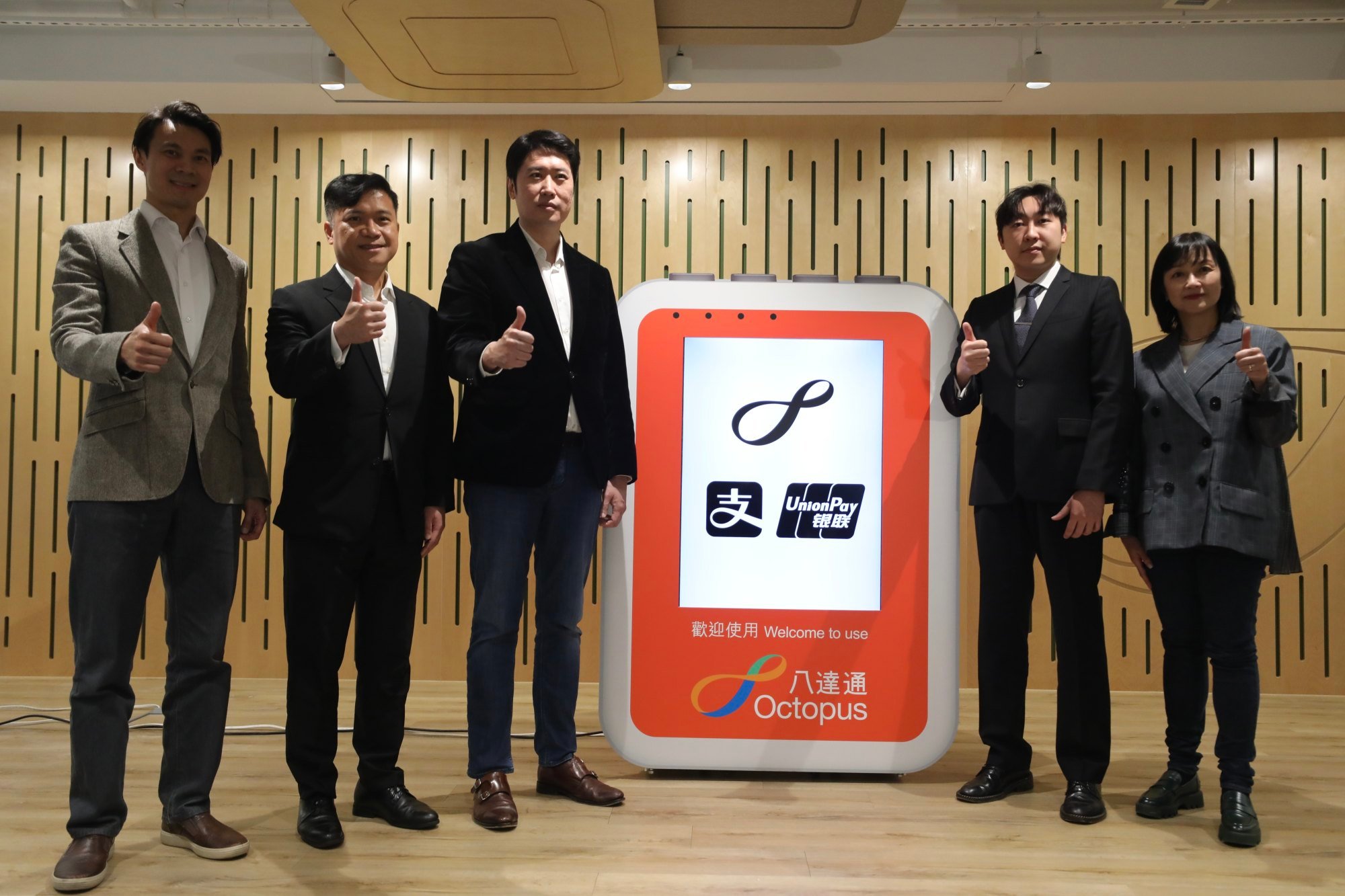
Hong Kong taxis with Octopus fare machines to accept payment through UnionPay, Alipay from January 25
- Octopus says it will open up its payment networks for the first time in 26 years to UnionPay, Alipay and AlipayHK
- About half of active taxi drivers in city use Octopus app and fare machine to receive payments, according to company
Hong Kong taxis with Octopus fare machines linked to mobile phones with an updated app will start accepting digital payments through two mainland Chinese QR code wallets, with the aim of providing convenience to residents and tourists from across the border.
Octopus Cards Limited on Thursday said it would open up its payment networks for the first time in 26 years to UnionPay, Alipay and AlipayHK starting from January 25 for the taxi industry, which had long relied on cash transactions.
“We hope to be able to address a major pain point for both drivers and riders alike,” said CEO Tim Ying Tien-chi, who joined the company in August.

UnionPay is a state-owned firm providing bank card services on the mainland. Alipay is a payment app owned by Ant Group, an affiliate of Alibaba Group Holding, which owns the South China Morning Post.
Asked why other credit cards and payment service providers would not be accepted, Octopus’ sales and marketing director, Rita Li Yuk-yi, said mainland visitors made up 80 per cent of all arrivals after Covid-related travel restrictions were lifted, prompting the company to prioritise tourists from across the border in its expansion plan.
“We hope to collaborate with other payment platforms to break the dominance of cash. We remain open and welcoming towards the participation of other platforms,” she said.
‘Old-fashioned’: Hong Kong taxi sector leader urges cabs to install e-payment system
About half, or 21,000, of 40,000 active taxi drivers in the city were using Octopus’ app and fare machines to receive fares, according to the company, with the total transaction value reaching HK$1 billion (US$127 million) since 2019.
Cabbies with the Bluetooth-enabled Octopus card readers can update the Octopus for Business app on their mobile phones to accept payments through the two QR wallets from January 25, while newly registered drivers will receive the fare machines for free and have their transaction fees waived until December 2025.
Drivers can transfer the fares they received through e-payments anytime from the app to their bank accounts via Hong Kong’s Faster Payment System, according to Octopus.
The company has waived transaction fees for cabbies since 2018. Li said she was confident that cabbies would continue to opt for e-payments even if a 1 per cent transaction fee was introduced after 2025.
“We will decide if we will continue to [waive the fee] depending on the market situation,” she said. “I believe the new payment options will potentially increase their income.”
Octopus card spreads its reach in Hong Kong, wins over elderly, small merchants
Octopus has also launched a referral programme to encourage taxi drivers to join its platform. Existing users who refer their peers can earn HK$100 for each successful referral until March 31, making up to HK$1,000 with a maximum of 10 referral rewards.
But taxi driver Tony Lai, 43, said he was reluctant to rent a cab with an e-payment terminal as he wanted to hide how much he earned.
“Many cabbies I know are public housing tenants. If the government becomes aware of their substantial income, it could lead to the confiscation of their flats and heavy taxation. That’s why we prefer cash more,” he said.
Chau Kwok-keung, chairman of the Hong Kong Taxi and Public Light Bus Association, which has 12,000 members who are taxi owners, urged Octopus to accept credit cards as a form of payment as soon as possible.
“Hong Kong as an international city, taxis leave a bad impression on tourists as they lack digital payment options,” Chau said.
‘Hong Kong’s Octopus to invest millions in technology, consumption voucher offers’
He added that his group had asked the Transport Department to establish a lane at the airport for taxis that accepted e-payments.
The department said it welcomed Octopus’ initiative to accept digital payments through the two QR code wallets.
“It continues to maintain open [dialogue] with all players in the ecosystem, encouraging the adoption of more non-cash payment means for the convenience of all passengers,” it said.

